Davide Alogna, Costantino Catena, Orchestra Sinfonica di Milano, Pietro Borgonovo - Margola: Music for Violin, Piano & Orchestra (2022) [Hi-Res]
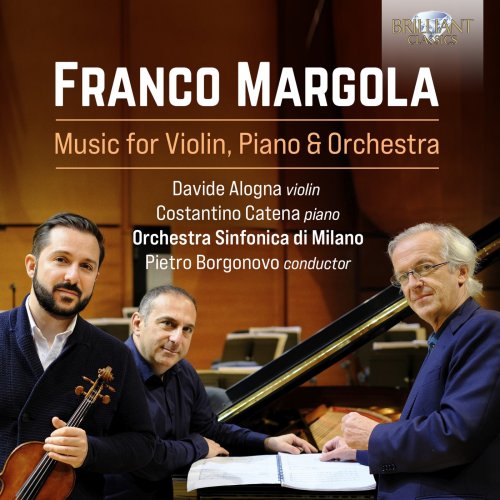
Artist: Davide Alogna, Costantino Catena, Orchestra Sinfonica di Milano, Pietro Borgonovo
Title: Margola: Music for Violin, Piano & Orchestra
Year Of Release: 2022
Label: Brilliant Classics
Genre: Classical
Quality: flac lossless (tracks) / flac 24bits - 96.0kHz +Booklet
Total Time: 01:21:37
Total Size: 410 mb / 1.37 gb
WebSite: Album Preview
TracklistTitle: Margola: Music for Violin, Piano & Orchestra
Year Of Release: 2022
Label: Brilliant Classics
Genre: Classical
Quality: flac lossless (tracks) / flac 24bits - 96.0kHz +Booklet
Total Time: 01:21:37
Total Size: 410 mb / 1.37 gb
WebSite: Album Preview
01. Concerto dell'alba, dC292: I. Cantabile
02. Concerto dell'alba, dC292: II. Lento
03. Concerto dell'alba, dC292: III. Rondo
04. Kinderkonzert No. 2, dC109: I. Allegro
05. Kinderkonzert No. 2, dC109: II. Sostenuto
06. Kinderkonzert No. 2, dC109: III. Allegro finale
07. Sonata in D Major, dC12: I. Sostenuto, andante, poco sostenuto
08. Sonata in D Major, dC12: II. Lento
09. Sonata in D Major, dC12: III. Vivace
10. Doppio concerto, dC132: I. Allegro imperioso
11. Doppio concerto, dC132: II. Adagio
12. Doppio concerto, dC132: III. Allegro
13. Variazioni sopra un tema giocoso, dC143
Franco Margola (1908–1992) had an unwavering and authentic love for the violin, lasting throughout his career and artistic development. This recording showcases the versatility of the Brescian composer and the evolution of his musical thought over his lifetime. Often resisting the fashions of his time, the composer balanced tradition and modernism. In the aftermath of the Second World War, Margola became intolerant of harsh and violent sounds and so preferred writing more relaxing pieces.
Kinderkonzert No. 2 is a work for violin and orchestra (1954). In the first movement, the writing is fluid and melodious. Only during the cadenza does the atmosphere become more serious, and the lightness that characterised the entire movement is only rediscovered with the return of the full orchestra. The next movement, Sostenuto, has a dreamlike character that comes to life in the central section with dance-style music. In the final Allegro, the soloist’s part is characterised by brilliant virtuosic writing which fits well into the articulated orchestral texture.
Almost thirty years later, Margola wrote Concerto dell’alba for violin and string orchestra (1982). Intended to be the third of the "Kinderkonzert", Concerto dell’alba sounds free from any form of modernism and cerebralism. Nevertheless, the composer uses a modern idiom with wisdom and discretion which creates a spontaneous musical eloquence and cantabile sound. A vigorous Rondo with lively popular tunes concludes the Concerto.
The composer proposed a decidedly neoclassical writing style in Variazioni sopra un tema giocoso (1965), placing well calibrated sounds within a formal structure. Also neoclassical, Sonata in D (1931) is the first of a series of five violin sonatas and reveals the composer’s technical mastery. In the first movement, two themes are alternated: one serious, and the other dreamy, seemingly floating on the arpeggiated piano accompaniment.
In 1960, the Doppio concerto for violin, piano and string orchestra was published. Once again, Margola refused to follow contemporary musical fashions, instead following his own nature in the search for an expressive and spontaneous language. The three tempos that make up the Doppio concerto follow each other seamlessly and show us a cleverly devised composition where the romantic musical idiom is updated in the light of the experiences of the new century.
Franco Margola (1908-1992) has his musical roots in the 19th century, in particular in the cultural movement which was predominantly interested in instrumental music, as opposed to the opera. Franco’s musical language is classicist, with clear formal structures and a leading role for the melody.
Beautifully played by Davide Alogna, one of Italy’s best known violinists. Alogna was soloist with conductors like Riccardo Muti, Eliahu Inbal, and Zubin Mehta. The pianist is Costantino Catena, a strong advocate of Italian piano music, particularly by Ermanno Wolf Ferrari. They are accompanied by the excellent Orchestra Sinfonica di Milano, conducted by Pietro Borgonovo.
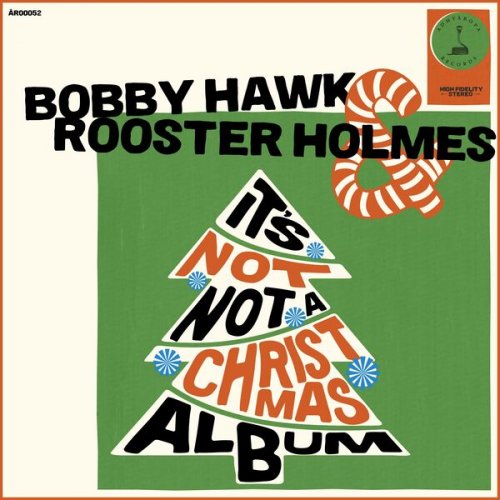
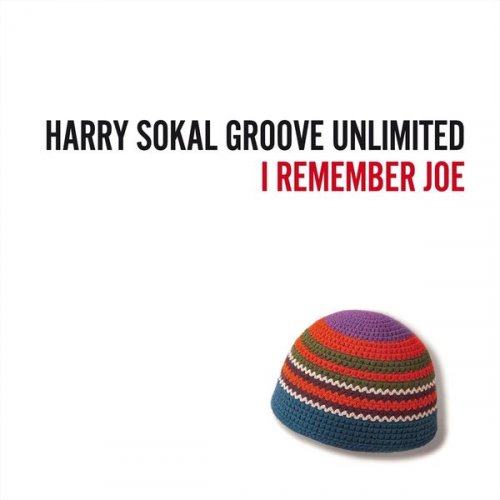
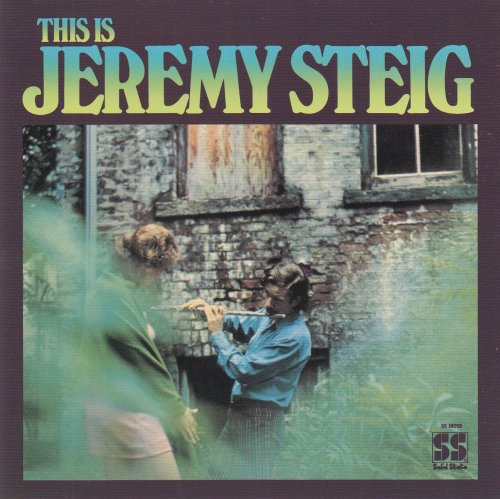
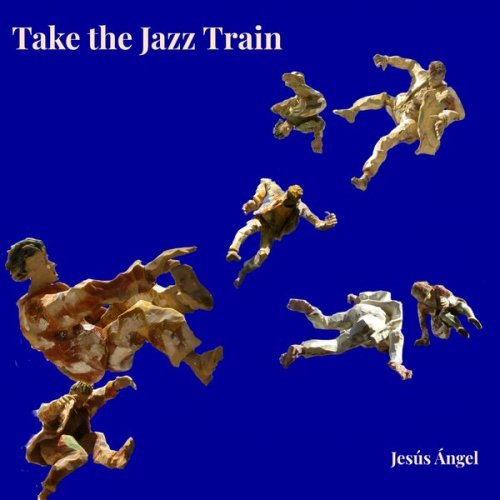
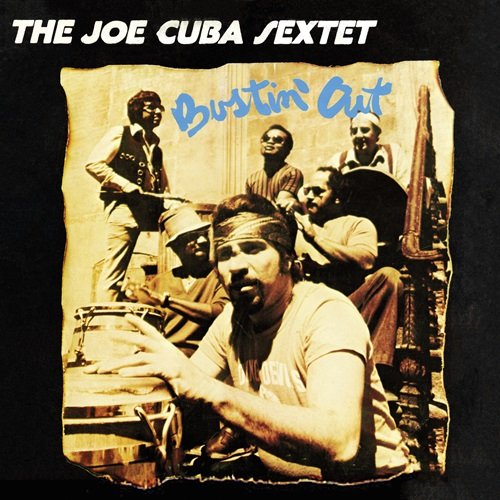
![Pierre-Antoine Savoyat & Le Monde Merveilleux de Pepito - Thousand Shades of a Clown (2026) [Hi-Res] Pierre-Antoine Savoyat & Le Monde Merveilleux de Pepito - Thousand Shades of a Clown (2026) [Hi-Res]](https://www.dibpic.com/uploads/posts/2026-01/1769151977_k2jxxn245f8bb_600.jpg)
![阿部海太郎 - Musical Portrait of Takashi Minamoto 08:漱石悶々 夏目漱石最後の恋 (2026) [Hi-Res] 阿部海太郎 - Musical Portrait of Takashi Minamoto 08:漱石悶々 夏目漱石最後の恋 (2026) [Hi-Res]](https://img.israbox.com/img/2026-01/23/8saiy7y1e5bx5htozbwxna9xl.jpg)
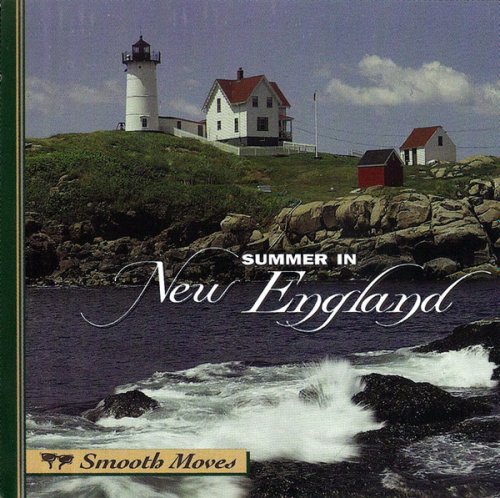
![Celestial Planes - Objet Perdu (2025) [Hi-Res] Celestial Planes - Objet Perdu (2025) [Hi-Res]](https://www.dibpic.com/uploads/posts/2026-01/1769096532_cover.jpg)